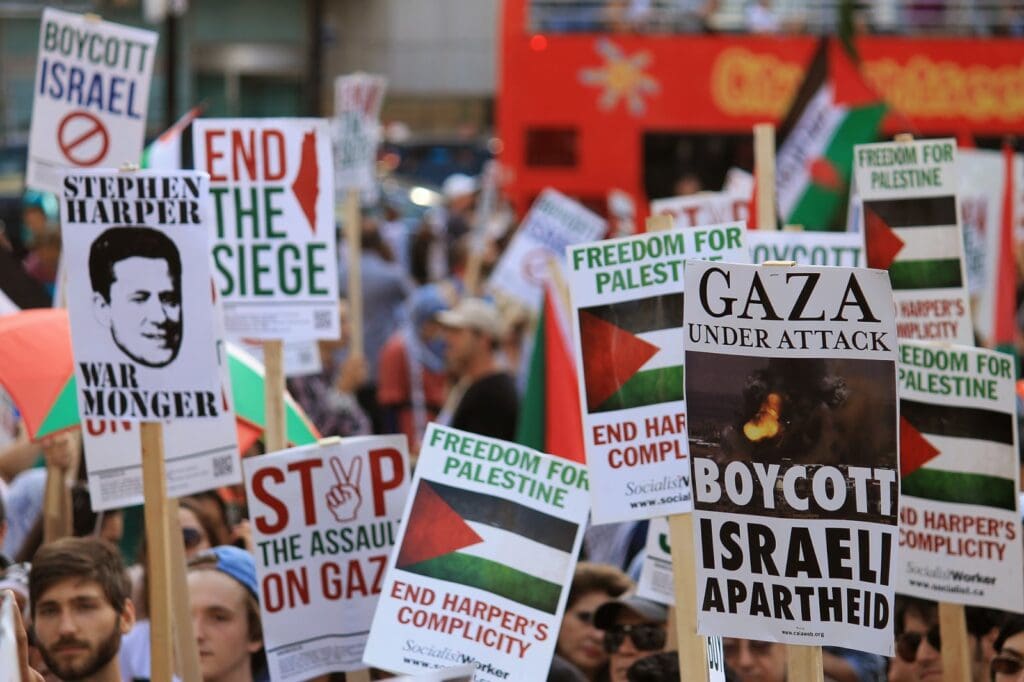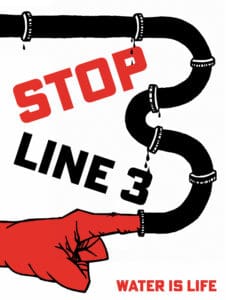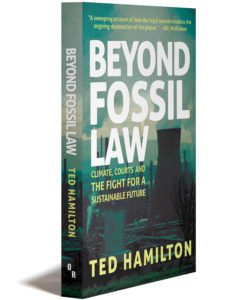In recent weeks, people working for climate justice have faced questions about whether and how to respond to the situation unfolding in Palestine — a situation that can accurately be described as a genocide perpetrated by the Israeli government and backed by the U.S. government.
Nonprofit organizations like ours operate within cultural, legal, and philanthropic frameworks that often divide issue areas from one another artificially (for instance, climate justice from environmental protection, and from racial justice, economic justice, and so on). We navigate these divisions when connecting with supporters, applying for funding, or navigating tax and legal requirements. But real-world problems don’t respect artificial divisions.
During this ongoing humanitarian crisis, there are many reasons to condemn Israeli occupation, apartheid, and genocide. Climate and environmental justice are, obviously, not the most pressing concerns. But, in addition to our collective responsibility as humans to do whatever we can to stand in the way of genocide, there are important material, cultural, and ideological connections between genocide and climate injustice that, in our opinion, demand that climate advocates pay attention:
-
- Warfare is a destructive, polluting business that ravages both people and landscapes. In 2019, Brown University’s Watson Institute for International & Public Affairs published a report on the serious environmental impacts of the wars in Iraq, Afghanistan, and Pakistan. The report found that military vehicles and equipment consumed fossil fuels “at an extremely high rate” — the U.S. Department of Defense is the world’s single largest institutional greenhouse gas emitter — while also producing significant air pollution and toxic dust, destroying forest cover, and contaminating the water supply, harming the health of locals and U.S. military members alike. In Iraq, for example, increased rates of cancer, birth defects, and other conditions are thought to be related to war-related environmental damage and toxins.
- Many of the financial asset managers supporting U.S. defense contractors also fund fossil fuel projects, deforestation, and other disastrous activities. Those asset managers include BlackRock, Vanguard, State Street, Fidelity, Capital Group, Wellington, JPMorgan Chase, Morgan Stanley, Newport Trust Company, Longview Asset Management, Massachusetts Financial Services Company, Geode Capital, and Bank of America. It’s not difficult to see that profits from one activity can fund investment in another.
- The violent appropriation of land and resources is part of what enables the fossil fuel system to proliferate, thereby fueling further violence. This pattern is not a thing of the past; it plays out even today. As the Israeli government escalates its genocidal violence against Palestinians, moving closer to total colonization, it is simultaneously licensing companies such as British Petroleum to explore for gas on the shores of Gaza.
- The devaluation of Black, brown, and Indigenous lives has long functioned to justify environmental abuses. The term “sacrifice zone” sums it up. In the words of United Nations Special Rapporteur Tendayi Achiume, “[t]he status quo is that global and national systems distribute the suffering associated with the global ecological crisis on a racially discriminatory basis.” Achiume makes clear that discrimination on the basis of race, ethnicity, and national origin is “at the core of environmental and climate injustice.”
- Violent conflict will become more prevalent as climate change kicks into high gear. According to a long line of research, higher global temperatures will lead to substantial increases in the risk of armed conflict. In fact, this has already been happening for some time: a study led by Stanford researchers estimates that climate change has already “influenced between 3% and 20% of armed conflict risk over the last century.”
We’re asking our supporters to speak out publicly in favor of a cease-fire, support anti-war protesters, and donate to organizations providing humanitarian aid, protester defense, and other crucial services. Here are some recommended starting points:
What To Do
-
- Join the Boycott-Divest-Sanction movement, and talk to your friends and family about it.
- Support those arrested for direct action against the war machine.
- Read about ways to support Palestinians in Gaza.
- If you work in the nonprofit or philanthropic sector, speak up for Palestine.
- Call your legislators and other elected officials, and ask them to do the same.
Where To Donate
- Palestine Children’s Relief Fund
- Palestine Legal (see their page with resources for U.S. activists advocating for Palestine)
- The Center for Constitutional Rights (see their recent request for an injunction against U.S. military funding)
In solidarity with those working toward justice in all its forms,
-the Climate Defense Project team





